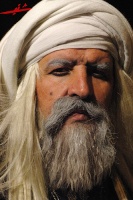نابغة
فريق العمـــــل *****

التوقيع : 
عدد الرسائل : 1497
الموقع : المنسق و رئيس قسم الفكر والفلسفة
تعاليق : نبئتَ زرعة َ ، والسفاهة ُ كاسمها = ، يُهْدي إليّ غَرائِبَ الأشْعارِ
فحلفتُ ، يا زرعَ بن عمروٍ ، أنني = مِمَا يَشُقّ، على العدوّ، ضِرارِي
تاريخ التسجيل : 05/11/2009
وســــــــــام النشــــــــــــــاط : 2
 | |  Astronomy through the ages Astronomy through the ages | |
the world an unparalleled view of the visible universe. The Hubble has revealed legions of distant galaxies and innumerable objects of mesmerizing beauty. But like telescopes before it, the Hubble is only a tool, wielded by the astronomers who have enabled human comprehension of the lights amidst the darkness of space.
A giant among these was Galileo, who was honored during last year’s International Year of Astronomy — a yearlong celebration of all things astronomical (SN: 05/23/09) — for the many advances he made with an early ancestor of the Hubble.
Before Galileo turned his telescope to the heavens in 1609, astronomers used their eyes, and brains, to construct coherent explanations for the night sky’s lights. From the unknown Babylonians to the Greeks and their intellectual offspring, astronomers of the ancient world pondered the patterns in motion of sun and moon, surveyed and cataloged the “fixed” stars, and mused about the mysterious wandering points of light that came to be called planets. That process of building a model of the cosmos became the exemplar for the rest of science, the observing, explaining and predicting of natural phenomena with quantitative precision.
Over the centuries, countless astronomy enthusiasts contributed to the emerging picture of the cosmos. Even the false steps along the way served to keep the pursuit of understanding the universe at the forefront of intellectual endeavor. Here are just some of those whose lives and work led ultimately to the modern conception of the cosmos, from the ancient Greeks to Edwin Hubble, whose name and namesake telescope will no doubt inspire astronomical celebrations four centuries from now.
| |
|


